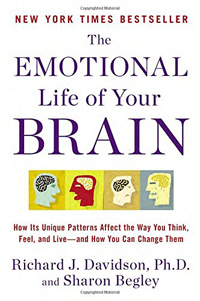Life has its challenges; no one is immune from trouble. Most of us have our own signature way of dealing with hard times, and that style varies from person to person. Something I’ve noticed is that people often get accustomed to using one approach or a couple of coping strategies when trouble comes.
Over the years, I’ve learned three basic coping strategies that work for me.
My Top 3 Coping Strategies
Holding Steady
At times I’ll maintain a fixed level of emotional equanimity. What I mean by that is, I’m stoic and silent in the face of adversity. Depending on the circumstance, being unemotional can sometimes be beneficial. I won’t allow myself to be shaken.
Diving Deep
I’m also a fan of diving deep, depending on the circumstances, to examine my inner emotions. My analytical mind loves looking for clues and nuances, getting to the bottom of things, searching for meaning and explanations. I’m an emotional archeologist.
Rising Up
And sometimes I choose to rise! With my head pointed up to the sky, I transcend, abandoning my problems and leaving trouble below to rise above the concerns of that day.
Keep in mind: whether you hold in place, sink and contract, rise and expand or something completely different, your way of coping with problems is a valid way, a method that you developed over time that works for you. It’s adaptive, or at least it was at some point.
Reme mber, just because you’ve always done it one way doesn’t mean you can’t learn a new way. All of these styles can work, depending on the situation and on what you need most at the time.
mber, just because you’ve always done it one way doesn’t mean you can’t learn a new way. All of these styles can work, depending on the situation and on what you need most at the time.
Dr. Richard Davidson, in his book The Emotional Life of Your Brain, discusses the neuroscience behind various emotional coping styles. Davidson explains, “One of my key messages is that the styles are indeed based upon specific brain circuits. And since we know that the brain exhibits plasticity, our styles in fact can be changed through a concept I call neurally inspired behavioral interventions. There are actually interventions around that were developed thousands of years ago that turn out to be very good candidates for this, and they come from the meditative traditions.” He suggests, then, that our best bet for becoming aware of our coping styles and for customizing them to fit each particular situation is to meditate.
 Davidson adds, “We’ve done studies, and there are other studies in the literature, showing that simple forms of mindfulness meditation actually do facilitate recovery from adversity and thus promote a greater resilience style, and change the brain circuits that are associated with resilience in ways that we would predict.” We can rely on this more meditative mindset to help us refocus and react to life’s challenges in a way that isn’t knee-jerk or automatic. We can slow down, find our centers, and choose what works best for pulling through adversity in each particular situation.
Davidson adds, “We’ve done studies, and there are other studies in the literature, showing that simple forms of mindfulness meditation actually do facilitate recovery from adversity and thus promote a greater resilience style, and change the brain circuits that are associated with resilience in ways that we would predict.” We can rely on this more meditative mindset to help us refocus and react to life’s challenges in a way that isn’t knee-jerk or automatic. We can slow down, find our centers, and choose what works best for pulling through adversity in each particular situation.
The next time you face a challenge or feel tempted to give in to despair, set aside time to meditate on the issue. Clear your mind, breathe and ask yourself what might work best for you this time. You can stand unshaken, gaze deeply inward or rise above. You might even toggle between these methods, understanding that you always get to choose your response, no matter what happens in your world.
Rewire your brain to remember you have choices. Because you do.

Rose Caiola
Inspired. Rewired.



